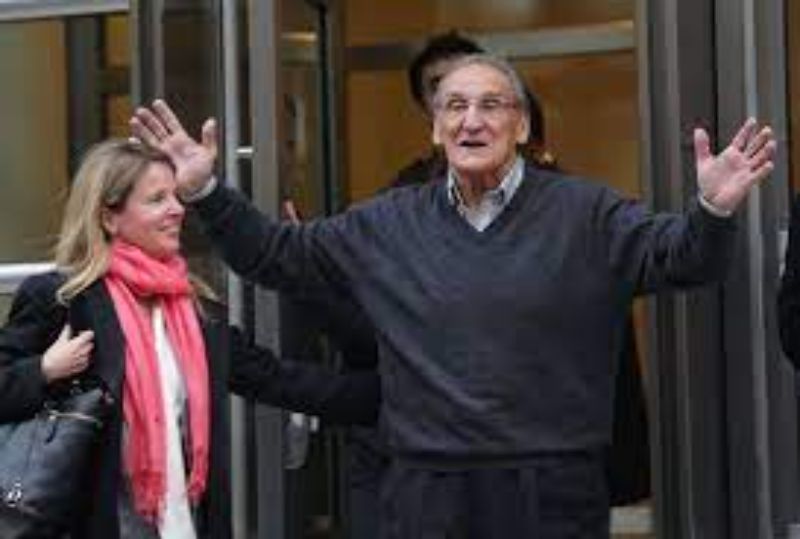One of the most infamous and enduring criminal groups in the United States is the Bonanno crime family.
The family, which was established in the early 20th century by Sicilian immigrants, has grown to become one of New York City’s Five Families and is well-known for engaging in a variety of criminal enterprises, such as loan-sharking, drug trafficking, prostitution, and gambling.
The beginnings, significant figures, and significant events in the history of the Bonanno crime family will all be covered in this article.
Origins of the Bonanno Crime Family
Early in the 1930s, the Castellammarese War broke out between Mafia factions, resulting in the deaths of up to 60 high-ranking mobsters.
A conflict between Italian Mafia members who preferred tradition to those who had grown up in the United States and desired to modernise the organisation was at the heart of the conflict.
Supporters of Giuseppe (“Joe the Boss”) Masseria and boss Salvatore Maranzano engaged in combat.
Maranzano established himself as the “boss of bosses” when Masseria was killed in April 1931 and named specific men as the heads of the other regions in New York, creating the foundation for the future Five Families.
Joseph Bonanno, a youthful battle commander and enforcer, was one of Maranzano’s appointees and worked for him.
Less than six months after Maranzano was killed, Bonanno assumed control of the family and ruled it for more than three decades.
Key Leaders of the Bonanno Crime Family
For more than three decades, Joseph Bonanno, sometimes known as “Joe Bananas,” oversaw the family.
In the 1950s and 1960s, when the family was experiencing tremendous growth and engaging in increasingly lucrative criminal activity, he served as the family’s leader. Bonanno was renowned for his astute economic judgement and for shunning some of his contemporaries’ excessive displays of money and power.
At the height of his influence in 1964, Bonanno made an attempt on the lives of rival mob leaders Thomas (“Tommy”) Lucchese and Carlo Gambino in an effort to take over the Mafia completely.
The scheme, however, was thwarted when hitman Joseph Colombo—who would eventually become the head of his own family—betrayed Bonanno and revealed the scheme to Gambino.
After that, Bonanno vanished and claimed to have been abducted. He allegedly fled the country to avoid consequences for his botched takeover and to avoid appearing before a grand jury, according to some law enforcement sources.
After Bonanno vanished, the Bonanno family fell into disorder, and a bloody power struggle known as the Banana Wars started.
The Racketeer Influenced and Corrupt Organisations (RICO) Act’s passage in 1970 and the FBI’s fight against organised crime both contributed to the family’s subsequent decline.
Notable Events in the History of the Bonanno Crime Family
Throughout its history, the Bonanno family has been associated with a number of prominent criminal offences.
Under the guise of “Donnie Brasco,” FBI agent Joseph Pistone infiltrated the Bonanno family in 1976 and advanced through the ranks while remaining undiscovered for years.
More than 100 prosecutions resulted from his testimony, and the family lost its place on the Commission, the criminal governing body made up of the leaders of the Five Families. Under Joseph Massino’s direction in the 1990s, the family was able to reclaim its position.
Massino himself contributed to a notorious episode in the Bonanno crime family’s past. When he went on the witness stand in 2004 to testify against Vincent Basciano, popularly known as “Vinny Gorgeous,” he made history by becoming the first Mafia boss to testify against another boss.
Massino’s testimony assisted in Basciano’s conviction on charges of murder and racketeering.
Following a lengthy career in organised crime, Massino ran into trouble in 2005. With the possibility of the death penalty and an eighth murder conviction on his record, he chose the uncommon choice to turn informant, working with the government in exchange for his life.
He was ultimately placed under witness protection in 2013, but not before allegedly disclosing significant details about a number of crimes committed by his friends, including numerous Bonanno family bosses.
Despite Massino’s assistance, the family continues to engage in white collar crimes like loan-sharking and extortion as well as worldwide drug trafficking.
At least four syndicate bosses have been found guilty of crimes such as racketeering and conspiracy to commit murder alone in the first decade of the twenty-first century.
Throughout much of the 2010s, Michael Mancuso, often known as “the Nose,” ruled as boss while going in and out of prison. With Massino’s assistance, the Bonanno family may have suffered a serious setback, but their criminal empire is still going strong.
Media Portrayals
The Bonanno family has been featured in several media representations over the years, including some of Hollywood’s most enduring motion pictures.
The Godfather (1972), which presents a fictionalised account of the family’s criminal operations, is the first and possibly most well-known.
More recently, the 1997 film Donnie Brasco gave viewers a peek into the actual experiences of an FBI agent who infiltrated the Bonanno family.
But not just moviemakers were interested in capturing these infamous figures on camera. In 1983, former family head Joseph Bonanno broke the Mafia’s oath of silence by publishing his autobiography, A Man of Honour, giving readers a first-person account of his operations.
Honour Thy Father (1971), a factual study of the Bonanno family co-authored by Gay Talese and Bill Bonanno, is another significant book.
A deeper comprehension of the intricate world of organised crime has been made possible for viewers by these media representations and literary works.
Conclusion
With roots in the early 20th century, the Bonanno crime family has a lengthy history of criminal activity.
The family has maintained a significant influence in organised crime from its early days of involvement in the Castellammarese War to its more recent battles with the FBI and RICO Act.
The Bonanno family continues to be a significant figure in the history of Mafia activity in the United States, despite the fact that their influence has diminished recently.

